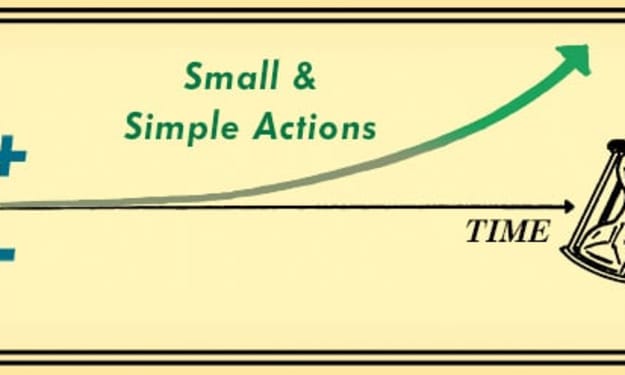
Asking questions is a fundamental life skill that you should always be improving on. You should be able to ask relevant questions without feeling as if you are imposing on someone. There are limits to how many questions or what kind of questions we can ask but you won’t know if that question will be answered until you ask it. Most of the time, there is no harm in asking someone a question and seeing what the response will be. I find that it’s often better to have posed the question than not to have asked anything at all.
Unfortunately, I would say that a lot of people are afraid of asking any questions at all. They may not want to cause a stir, fear a reprisal, or feel that their ego would be harmed by asking a question. I can sympathize with these concerns but it’s important to make sure that before agreeing to someone, before signing a document, or verifying a statement, that you ask all relevant questions that come to mind.
I would also argue that asking questions is not only necessary professionally but in your personal life. Being able to know more about your friend(s), your family member(s), and even your romantic partner comes down to asking good questions without overdoing it. It is one thing to be able to ask simple questions, but I would encourage you to get good at asking questions by following a few steps before you ask the question of the other person or of a group of people.
1. As I mentioned earlier, the question should be relevant to the subject(s) that you are talking about. To give a simple example, if you need to ask someone what their plans are job or career-wise, I could ask them, “what would you like work on in the future?” or “where would you like to work in the future?” I wouldn’t say, “what does the future hold?” or “what will you do?”. You must make the sentence a bit more relevant by expressing that you are asking about ‘work’ specifically and highlighting ‘in the future’ to make sure that you are discussing a future opportunity.
The other two questions are too general and do not specify enough that this is about a future job or opportunity. You should also make sure your question focuses on ‘your future’ and not ‘the future’ when asking that person. The other question of “what will you do?” has ‘in the future’ missing from the end where it could be more relevant.
2. Not only should questions be as relevant as possible, but you should avoid having them be open-ended. Similarly to not omitting ‘in the future’ from the end of the question, your question should be more concrete and firmer in what you are asking. Instead of asking someone, for example, “Did you tell the truth?”, it’s too open ended compared with, “Did you tell the truth about what happened at the party?” The person you are questioning may feign ignorance about an open-ended question such as not know what ‘truth’ or ‘true statement’ you are referring to.
At the end of the question, you should be specific about what the ‘truth’ pertains to such as ‘the party’, that the person you’re questioning was likely at and can tell you more about it. I believe that when it comes to asking questions, they should be relevant but not be open-ended so the other person will not better what you are asking them about and will find it more difficult to feign ignorance. You only may have one chance to ask the relevant person(s) your question(s) so it’s better that they be as a specific as possible and discuss what the person or people should already have some familiarity with.
3. Lastly, when it comes to getting good at asking questions, make sure you are addressing not just ‘what’ and ‘why’ but to get the full context, including all the -wh question words as well as ‘how’ to add on to it. I believe ‘what’ and ‘why’ to be the most important kinds of question words to use in any question. However, I would recommend not neglecting the chance to have follow up questions if feasible. Those follow up questions you ask should include ‘where’, ‘who’, ‘when’, and ‘how.’
You can also include other ways to ask the question such as ‘for what reason _______’ or ‘for what purpose ______’ as questions can begin in English with ‘for’. If you have just one question to ask, ‘why’ followed by ‘what’ can be used almost interchangeably but are most effective in finding out the person’s reasoning or justification regarding the answer.
Don’t repeat the same kind of questions repeatedly. It is important to mix up your questions involving the question words that you use at the start of the sentence. If you can ask multiple questions, make sure you address each relevant question word with the person you’re asking. You’ll find that you will get more information from them and will get better answers by using each question word. Whether it is reason, explanation, justification, or overall rationale in their answer(s), the various question words can be a large difference in the information you receive as a result. If you are going to ask questions, do not make them the same and vary them each chance you get to achieve better results.
Asking good questions is not easy and there is some skill involved. It is better to ask a question than to not have asked one at all if you take the time to practice. You should want to make sure that you are asking questions generally but ones that are relevant, not too open-ended, more specific, and are also varied in how they are phrased. These key steps will set you apart in terms of the kind of answers you may get. If your questions are vague, irrelevant, open-ended, or too generic, you will likely not get the answers you need, and your professional or personal life may not progress as well as a result.
Like any good life skill, asking good questions will take serious time and effort. Make sure to practice what questions you’ll ask someone before stepping in front of them. Take the time to prepare, write down your questions, analyze them for relevance, and practice with a trusted person before stepping up to ask the actual question. You’ll be glad for the practice in doing so and I think you’ll be much better off as a result when ‘question time’ comes around.
About the Creator
Ben W
Ben helps students from around the world to improve their English language skills. Ben enjoys traveling around the world, developing his writing abilities, and reading good books.






Comments
There are no comments for this story
Be the first to respond and start the conversation.